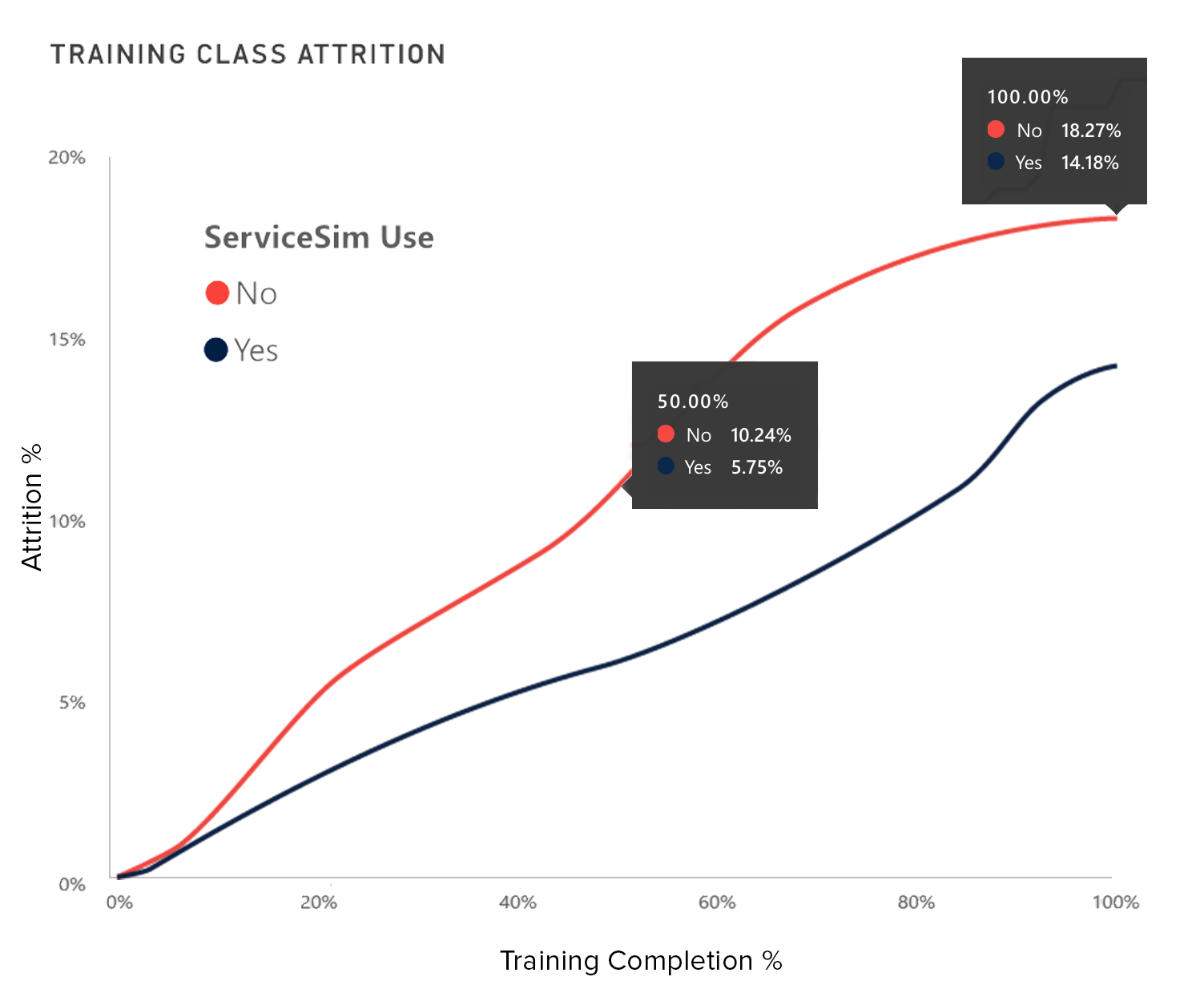It’s natural to think that more training leads to better-prepared, more skilled agents. Yet, in reality, too much training can actually hinder performance. This “training mirage” often creates a false sense of preparedness, leaving employees overwhelmed rather than empowered. Let’s explore the paradox of overtraining and discover how a more targeted, efficient approach can lead to higher confidence, lower stress, and improved outcomes.
The Hidden Anxiety Loop
Excessive training, although well-intentioned, often places employees in a cycle of stress and uncertainty. When training extends beyond what’s essential, employees may start to feel that their skills are inadequate, despite their progress. Studies on overtraining in workplace settings show that too much preparation can lead to burnout, decreased confidence, and a loss of clarity on the job.
Consider an agent who, after a lengthy training program, returns to work with a heightened sense of self-doubt. Faced with an overwhelming volume of information, they may feel insecure about their ability to perform their role effectively. This, in turn, creates a loop of anxiety that can manifest as diminished performance, ultimately harming both the agent’s experience and customer satisfaction.
How to Train Smarter, Not Harder
Rather than a “more is better” approach, effective training should be precise, focused, and relevant. Enter precision training, which emphasizes a “smarter, not harder” model. This approach targets specific skills and knowledge areas that each agent genuinely needs to succeed in their role. Precision training minimizes redundancy and ensures that each session adds clear value.
Precision training encourages a skill-centric and needs-based learning model, reducing the training overload that contributes to anxiety. By focusing on essential, role-specific competencies, agents can build confidence in their abilities and feel more motivated to apply what they’ve learned. Training that’s limited to what’s actually necessary has a stronger, more positive impact on their performance.
Tools & Techniques: The Role of AI in Training Personalization
Advancements in AI have made it possible to create highly customized, paced training sessions that adjust to each learner’s progress. Through data-driven insights, AI can help identify the most valuable learning modules for individual agents, eliminating irrelevant or redundant material. These tools allow agents to learn at a natural pace, reinforcing core skills while avoiding the pitfall of information overload.
Moreover, AI can assess an agent’s engagement and comprehension levels throughout training. If an agent struggles with a particular module, AI can recommend additional support or supplementary resources, ensuring that agents aren’t pushed through material before they’re ready or left to dwell too long on familiar concepts.
See how ServiceSim works in 90 seconds:
Results to Expect: Improved Retention and Job Satisfaction
Implementing smarter training strategies can lead to significant, measurable results. When agents receive focused, tailored training, they’re more likely to retain information, feel less stressed, and apply their skills effectively on the job. Precision training leads to stronger performance, which can result in higher job satisfaction and a sense of accomplishment.
Furthermore, by reducing redundancy and improving relevance in training, companies can foster a healthier, more productive work environment. Agents who feel confident in their abilities and empowered by their training are more likely to stay with the organization long-term, reducing turnover and contributing to a more consistent, skilled workforce.
In the quest to prepare skilled agents, the answer isn’t always more training—it’s smarter training. By avoiding the pitfalls of overtraining and instead adopting a precision-based approach, companies can help agents build skills that matter while reducing stress and boosting confidence. When training is designed to empower rather than overwhelm, the results speak for themselves: a more capable, motivated team ready to thrive in a fast-paced world.
SUBSCRIBE FOR EMAIL UPDATES

